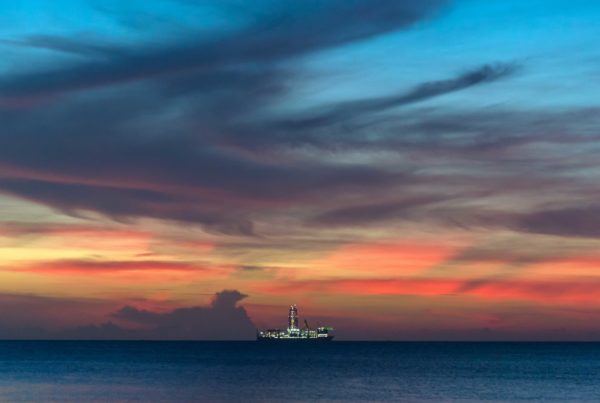 As we moved into the festive period last month, BP-operated AIOC and SOCAR were busy signing a letter of intent on the future development of Azerbaijan’s Azeri-Chirag-Gunashli (ACG) project. The giant offshore development, known as the ‘Contract of the Century’, began production in 1997 and peaked at 823 kbbl/d in 2010. However, production has since fallen to 644 kbbl/d in the first nine months of 2016 – well short of the 1 mmbbl/d third phase production target – due to a faster than anticipated decline at the East & West Azeri fields, despite West Chirag starting up in 2014.
As we moved into the festive period last month, BP-operated AIOC and SOCAR were busy signing a letter of intent on the future development of Azerbaijan’s Azeri-Chirag-Gunashli (ACG) project. The giant offshore development, known as the ‘Contract of the Century’, began production in 1997 and peaked at 823 kbbl/d in 2010. However, production has since fallen to 644 kbbl/d in the first nine months of 2016 – well short of the 1 mmbbl/d third phase production target – due to a faster than anticipated decline at the East & West Azeri fields, despite West Chirag starting up in 2014.
 ACG Gross Liquids Production by Field 2006-2022
ACG Gross Liquids Production by Field 2006-2022
* Chart produced by Sectors – the new online data and analysis service launching this week, click here for more information.
December’s agreement paves the way for the continued development of the project to 2050, pending a finalised agreement in the coming months. Over the short-term, production from ACG is expected to be flat, according to recent communications from BP. However, DW expects natural decline to persist post-2017 – despite additional production capacity from new fixed platform installations being likely around the end of the decade. Over the long-term, the success and scope of the December agreement will be essential to maintaining the viability of the project, as well as Azerbaijan’s oil industry as a whole – which has seen limited oil discoveries in recent years.
As it stands, gas and condensate offer the best prospects for growth in the Azeri oil & gas sector. BP’s Shah Deniz Phase II is expected online in 2018 and will ramp up over the course of the following three years to 120 kbbl/d of condensate and 289 kboe/d of gas as the Trans Adriatic Pipeline (TAP) comes online in 2021. Further gas and condensate additions will also be seen from Total’s Absheron project, which saw a development agreement signed in November 2016.
Therefore, in order for the continued prosperity of the Azeri oil sector, significant oil discoveries will need to be made. However, SOCAR’s geologists have said that as yet unexplored reserves in the Caspian Sea are more likely to contain gas rather than oil. Consequently, while an extension of the ‘Contract of the Century’ is a positive move for the country, the future of the Azeri hydrocarbons sector is likely to hinge on gas, not oil.
Matt Adams, Douglas-Westwood London
+44 (0)1795 594723 or [email protected]



